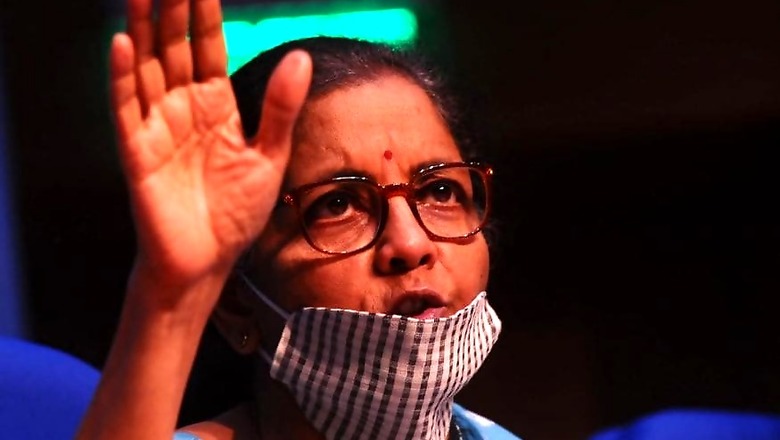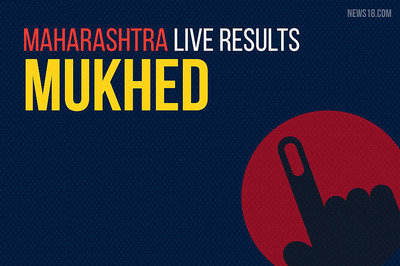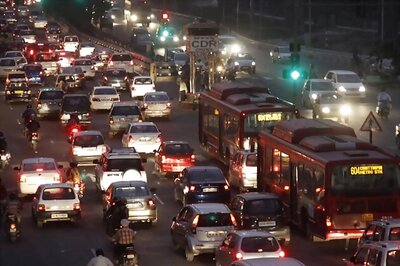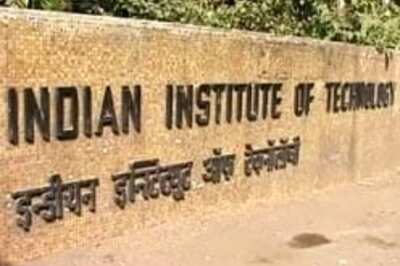
views
Finance Minister Nirmala Sitharman through five tranches of announcements laid out the Centre's relief package in response to the biggest economic crisis India has faced in the last four decades. The response was a combination of immediate and long-term policy measures.
Here are the biggest decisions that the Centre took during the last week:
Migrant workers
Finance Minister Sitharaman in her address on Thursday announced that ‘one nation, one ration card’ will be rolled out to benefit migrant labourers who are currently either outside their states due to the lockdown or have no access to fair price shops where they are registered.
Along with this, the Centre will also provide food grains to those migrants who have no ration cards for the next 2 months. "Migrants who are neither registered under national food security act or state card beneficiaries will be provided 5 kg of grains per person and 1 kg chana per family per month for two months," Sitharaman had said.
The government estimates that about 8 crore migrants will benefit through this move. Rs 3,500 crore will be spent on this intervention for two months. State governments will be responsible for implementation, identification of migrants, full distribution and coming up with the required guidelines.
Employment in rural areas
Highest-ever allocation of more than Rs 1 lakh crore was made to MGNREGA in order to boost employment opportunities in villages and bring relief to migrant labourers who are heading back to their native places.
Announcing the last tranche of the economic package, Sitharaman on Sunday said Rs 40,000 crore will be allocated to the Mahatma Gandhi National Rural Employment Guarantee Scheme (MGNREGS) over and above the budgetary allocation of Rs 61,500 crore.
Eighteen crore person days of work has been generated so far, which is 40 per cent compared to the same period in the last financial year. Further, it will help in generating nearly 300 crore person days of work in total and create larger number of durable and livelihood assets, including water conservation assets.
MSME and Street Vendors
Sitharaman announced the first tranche on Wednesday, detailing six measures to revive micro, small, medium enterprises (MSME) that have taken a serious hit due to the lockdown implemented in order to curb the spread of Covid-19.
Rs 3 lakh crore collateral-free automatic loans for businesses, including MSMEs, was announced by the Centre. Under this, borrowers with upto Rs 25 crore outstanding and Rs 100 crore turnover are eligible.
Secondly, Rs 20,000 crore subordinate debt for stressed MSMEs was announced. Third, Rs 50,000 equity infusion for MSMEs through fund of funds was announced on Wednesday. A fund of funds with corpus of Rs 10,000 crore will be setup immediately, said the finance minister.
Fourth, the Centre revised the definition of MSMEs to help more firms fall under its purview. Investment limit was revised upwards and additional criteria of turnover was also introduced.
The fifth measure said that global tenders will be disallowed for government contracts up to Rs 200 crore. Lastly, MSME receivable from the government and CPSEs will be released in 45 days.
In order to revive businesses of street vendors that have taken a serious hit due to the Covid-19 lockdown, the Centre on Thursday launched a special credit facility amounting to a total of Rs 5,000 crore that will provide Rs 10,000 as initial working capital.
Agriculture
The government will bring in a facilitative legal framework to enable farmers for engaging with processors, aggregators, large retailers, exporters, etc in a fair and transparent manner. This will ensure assured returns and risk mitigation for farmers.
A central law will be formulated to provide adequate choices to farmers to sell produce at attractive price, barrier-free inter-state trade and a framework for e-trading of agriculture produce. Cereals, edible oils, oilseeds, pulses, onions and potatoes will be deregulated. Essential Commodities Act will be amended to enable better price realisation for farmers.
State Borrowing
In the final phase of her announcements, Sitharaman said that the government has decided to increase the borrowing limits of states from 3 per cent to 5 per cent of the Gross State Domestic Product (GSDP) for the year 2020-21, but only if they meet certain reform conditions.
Sitharaman said that the state governments, so far, have borrowed only 14% of the limit which is authorised to them while 86% of the limit remains unutilized.




















Comments
0 comment